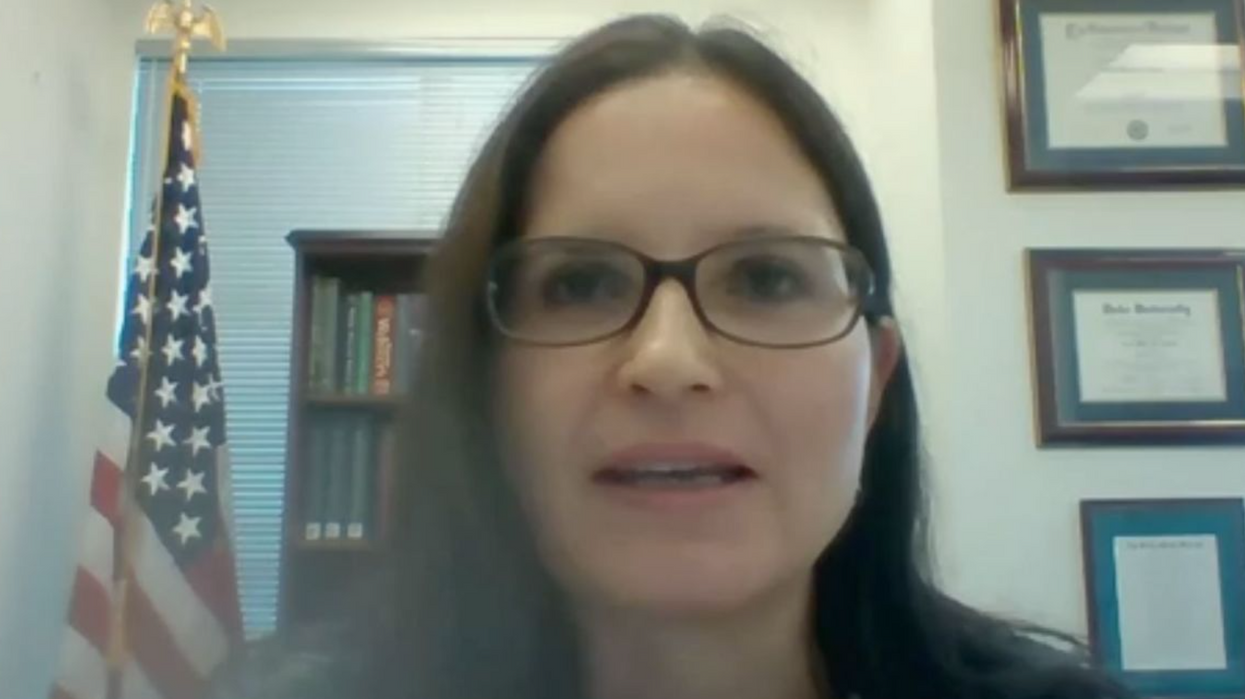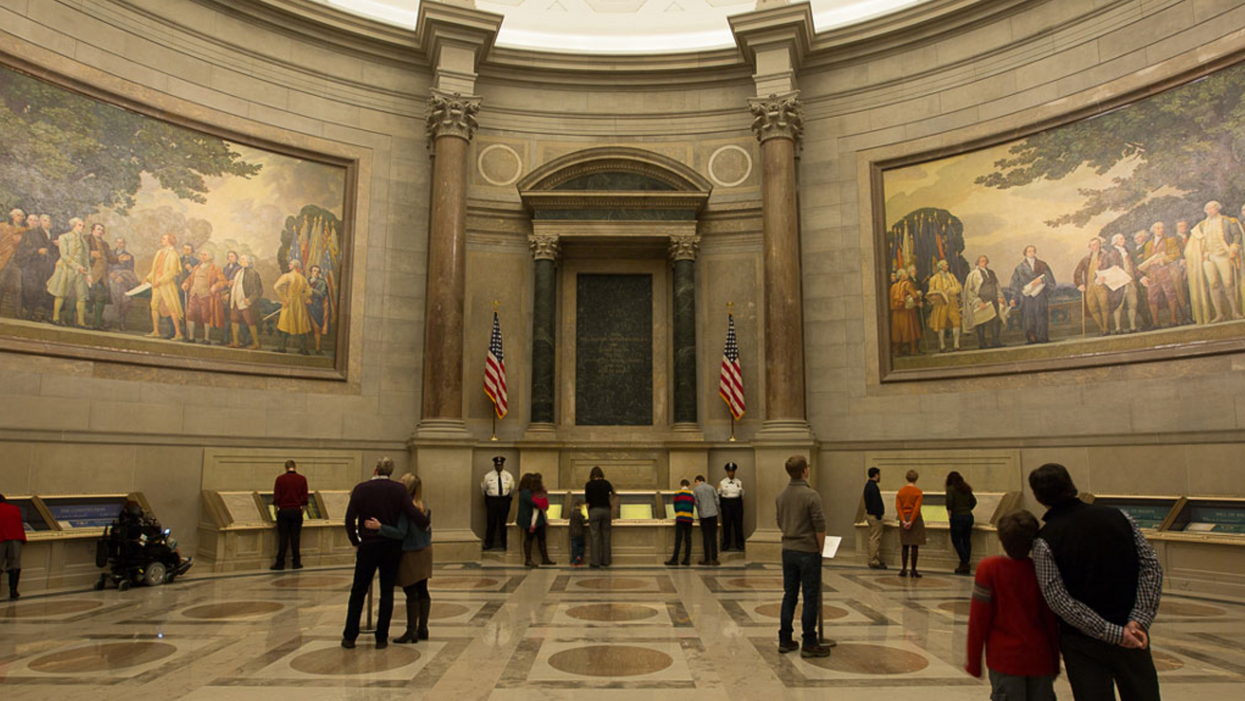Let’s see if we can sum up the situation surrounding the decision by a Federalist Society judge in Florida appointed by Donald Trump allowing a so-called special master to examine the documents taken by Donald Trump from the White House.
Trump does not own the documents. They were taken by him from the White House on or before January 20, 2021 when he left office. Trump admitted as much when he returned 15 boxes of documents and other materials to the National Archives in February of this year, and when he had his lawyer, Christina Bobb, hand over to the Department of Justice some 50 classified documents from the Mar a Lago storage room in June. So the documents he voluntarily returned, at least, cannot be assumed to be subject to either attorney-client privilege or executive privilege because Trump gave them back to the government, which owns them.
Then there are the documents that were seized pursuant to a legal search warrant issued by a different federal judge who examined a request from the DOJ that included a long section of evidence obtained from witnesses and other methods as to why there was probable cause that the documents were present at Mar a Lago. This assertion in the application for the search warrant that was borne out by the fact that the FBI found them where they said they would be.
The FBI application for the search warrant cited the fact that the documents had not been returned to the government was itself evidence of potential obstruction of justice. The seized documents, and the documents turned over previously, are evidence in a criminal investigation. Even if some of the documents end up being found somehow, for some reason, subject to executive privilege, there is no provision in the law or in the rules regarding executive privilege that would exempt those documents from being used as evidence that a crime was committed, such as obstruction of justice or violations of the Espionage Act.
There is no provision in the law for a president to shield himself from prosecution by asserting executive privilege or attorney-client privilege over evidence. In this case Trump’s removal of the documents from the White House, is itself an apparent violation of the Presidential Records Act. A good analogy would be the provision in the law, long upheld by the courts, that a client cannot assert attorney-client privilege over evidence that a crime was committed in the communications between the suspect and the attorney. Neither can the attorney assert protection of attorney-client privilege for the same reason.
In short, if there are communications that may prove that a crime has been committed, there are no provisions in the law to shield that evidence. For example, if a suspect asked his lawyer to call a compatriot and tell him to pick up the proceeds of a drug sale so that money could be used for any reason including paying the attorney, that communication would not be protected as a privileged communication between the attorney and the suspect.
The same would apply to any assertion of executive privilege that would seek to deny to the government evidence that a crime had been committed. In the Trump case, that evidence is the documents Trump removed from the White House. They are, at the very least, potential evidence of violating the Presidential Records act. The documents could be evidence that Trump sought to obstruct justice by hiding them from the government, which owns them, and refusing to turn them over. The classified documents could also be evidence of violations of the law regarding the improper storage, movement, and release of national defense information, or NDI, which is covered under U.S. Code 793 involving the improper gathering, storage, transmission, or loss of national defense information. It is not necessary for so-called NDI to be classified, only that the information involve the national security of the United States.
Judge Cannon, who Trump appointed in May of 2020 and who did not take office until several days after Trump had lost he election, also asserted in her order that Trump might suffer “reputational damage” due to some documents that might be subject to executive privilege if they were used as evidence in the FBI criminal investigation. The good judge ignores, of course, that any person under investigation by the FBI and the DOJ for committing a crime, and any person whose home is searched for evidence of crime pursuant to a legal search warrant, has his or her reputation damaged. So the judge appears to have put Trump in a class of exactly one as someone a federal judge has to protect from having his reputation harmed by the fact that he is under investigation by the DOJ. Her move to appoint a special master to “review” the documents Trump took from the White House, as well as to bar the DOJ even from interviewing witnesses about the documents while the special master is completing his or her review, is clearly an attempt to protect Trump from the DOJ’s investigation of his potential criminal behavior.
There is also the matter of whether Trump, as a former president, can assert executive privilege at all. Richard Nixon tried to use executive privilege in his assertion of ownership over the White House tapes, an assertion that was denied by the Supreme Court unanimously. Another court decision found that the power to assert executive privilege belongs to the sitting president, and in this case, President Biden has not asserted executive privilege over the documents Trump took to Mar a Lago.
And then there is the very odd portion of the judge’s order where she specifically allows the review of the Trump documents by the Director of National Intelligence (DNI) to continue. The DNI, along with the Central Intelligence Agency, National Security Agency, and Defense Intelligence Agency, are reviewing the documents to assess any risk to national security that may have resulted from Trump storing classified documents in insecure locations in Mar a Lago and having them moved around and potentially seen by persons who do not have the security clearances necessary even to be in the presence of the classified documents.
The judge has essentially ruled that one part of the executive branch, the part that deals with enforcing the law, cannot see the documents until they have been reviewed by the special master, but another part, which deals with matters of intelligence and national security, can see them.
Judge Cannon has let us know that while national security matters to her, the security of the man who appointed her, Donald Trump, matters even more. That is what she has done by allowing the appointment of a so-called special master to review the documents Trump illegally removed from the White House. She has protected Trump, at least for the time being, from the DOJ’s investigation and potential prosecution.
With the Federalist Society, the Republican Party, and Donald Trump, you get what you pay for, and Judge Aileen M. Cannon is clearly bought and paid for by all of the above, and as of today, they are getting their money’s worth.
Lucian K. Truscott IV, a graduate of West Point, has had a 50-year career as a journalist, novelist, and screenwriter. He has covered Watergate, the Stonewall riots, and wars in Lebanon, Iraq, and Afghanistan. He is also the author of five bestselling novels. You can read his daily columns at luciantruscott.substack.com and follow him on Twitter @LucianKTruscott and on Facebook at Lucian K. Truscott IV.
Reprinted with permission from Lucian Truscott Newsletter












